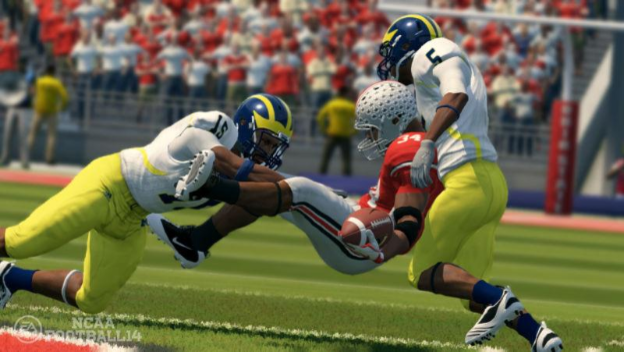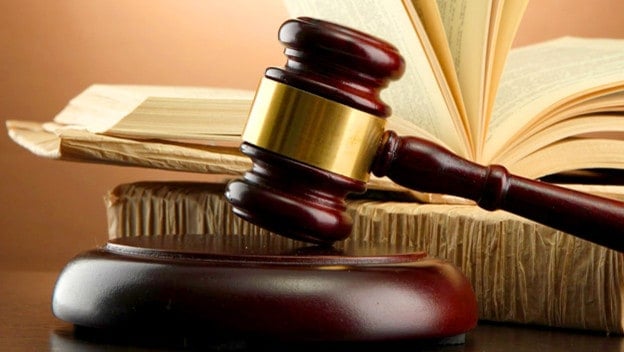Recently, EA lost a lawsuit over Madden , and about two years ago a similar case was settled with the NCAA. The Madden suit involved a lawsuit filed by former NFL players upset that their likenesses were used in Madden NFL games without their permission or compensation. The Madden NFL games featured the ability to play with former teams that exactly copied the members’ specific attributes and positions. The players’ names, however, were missing. EA attempted to claim that without names, the inclusion was incidental to the appeal of the game and protected as free speech. Clearly EA’s lawyer wasn’t being creative enough, as the Supreme Court was unswayed and affirmed the previous appeals court ruling.
Two years previous, EA fought almost exactly the same case, this time along with the NCAA against student athletes. The student athletes claimed that the college organization and EA were profiting off their likenesses without compensation in the soon to be released college football game. After quite some time in court, EA announced it would not be releasing the game at all. The case was settled September 2013, allowing the student athletes to be paid for the use of their likenesses. NCAA lost the case as well, and did not renew its contract with EA the following year.
These are yet more grievous sins EA has made in the name of an authentic sports experience for the EA Sports games. I don’t believe that the right of free speech should include the right to use a person’s image without their permission for the sake of realistic gaming. The court, in this case, is entirely correct. Being a voice actor and allowing a game developer using your likeness in the character’s design is one thing; filming a college football match and putting it in a game is quite another.
In both cases, EA fought for its right of freedom of speech. The freedom of speech right in the US has a lot of grey areas, but essentially it means the right to express your opinions without censorship, restraint, or legal penalty. EA’s lawyers, I imagine, claimed that the accused games were simply an artistic expression of sports teams for the sake of an authentic game experience. Perhaps if EA had been a little more creative in the “likenesses” of the players, they might have been right. After all, no one steals quite like an artist. There is a difference, however, in copying something and being inspired by something. EA, as it were, is not merely painting a pipe but replicating one .

The student and NFL athletes are clearly on the legally and morally correct side here. The right to control your own image is extremely important. As these two cases show, it’s not just famous NFL players that need to care about permission and their likenesses in a game. Spreading such images without permission can affect your reputation a great deal. For example, if the college football game included odd or offensive behavior from the players, than the students’ reputation among fans might be hurt. Furthermore, without permission, sharing such images takes control away from the social presentation of yourself. People normally want to control their online image, especially when their career puts them in the public eye. Reputation is important, and losing control of it could even lead to the inability to continue with your career of choice.
This is not freedom of speech, this is fraudulent copying. Though EA may not have caused stigmas for the NFL and student athletes, the situation could very well lead in that hurtful direction if more companies decide they have the right to use peoples’ images without permission. The ability to control your image is essential to your reputation. Taking that control away can lead to embarrassing stigmas. Even in the name of authentic gameplay, I do not think using current or former players’ likenesses without permission is correct.
